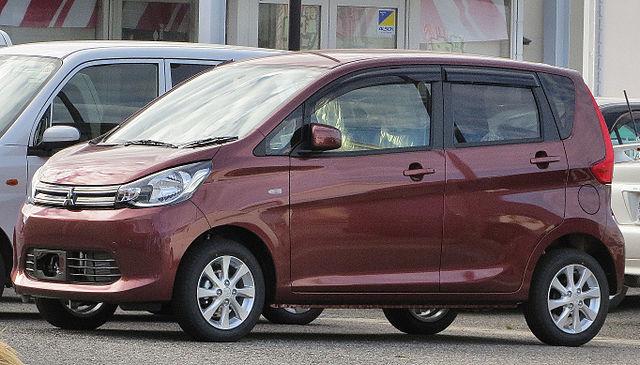
Mitsubishi Motors recently announced that it will reimburse owners of four of its kei car (or mini-vehicle) models in the wake of an investigation by Japanese transportation authorities that revealed the company had exaggerated those cars’ mileage readings. As many as 600,000 owners of the four vehicle models -- which include the eK Wagon and eK Space, as well as the Nissan-branded Dayz and Dayz Roox -- will be compensated 100,000 Japanese yen, or about $960, Reuters reported on Friday. The company estimates that the total cost of these refunds to owners affected by the automaker’s mileage scandal will soar as high as $600 million.
Meanwhile, the company suspended sales of those four models since the scandal hit the newswires in April. The models under investigation all had 660cc engines, long a preferred motor in Japan because of the country’s extreme urban density; in turn, the country’s government has long offered rebates in order to encourage steady sales.
Unlike the Volkswagen emissions scandal, which was widespread and resulted in that company subjected to various lawsuits around the world, Mitsubishi’s struggles are localized within Japan. Nevertheless, revelations of the rigged mileage data were devastating for the company, which was already struggling to rebuild consumer trust. During the early 2000s, Mitsubishi was forced to disclose a long history of covering up defects including faulty brakes, clutches and fuel tanks.
The result of yet another scandal is a company that now carries an even weaker reputation within and beyond Japan when compared to domestic competitors Nissan, Toyota, Honda, Mazda, Subaru and Suzuki. Earlier this month, the Wall Street Journal reported that Mitsubishi had to write off a 50 billion yen ($480 million) charge as the company disclosed as many as 20 models in total may have been sold with altered mileage data. The company’s stock and sales had cratered to the point at which the automaker needed an infusion of cash. Last month, Mitsubishi entered into an alliance with Nissan, which agreed to pay $2.2 billion for a 34 percent stake in Japan’s sixth-largest automaker.
Despite Mitsubishi’s claim that it is committed to a full investigation of the mileage cheating fiasco, the company’s long-term prospects are bleak. Shortly before investigations revealed that the company was manipulating such data, Mitsubishi announced that its financials for the previous fiscal year had taken a large hit. Furthermore, the automobile market in Japan is now proving to be unkind to Mitsubishi and its competitors, with or without any scandals.
Seen as a way to boost mobility and industrial capacity, Japan’s government encouraged its companies and citizens to make the kei car their purchase of choice. But there is an ongoing argument that a focus on these small cars has come at the expense of Japan’s potential to export larger, and therefore more lucrative, automobiles. To that end, taxes on small cars were increased to wean the Japanese away from these cars and to encourage the scope and scale of larger vehicles that can be sold abroad. The 50 percent spike in these small cars’ taxes, implemented this spring, led to a recent decline in their sales. So, despite the fact that Japan’s economy is performing relatively well, Mitsubishi cannot benefit from consumers who overall are feeling more confident and are willing to spend.
If there is any consolation for Mitsubishi, it is that the company is hardly alone. For the past month, Suzuki has been grappling with its own mileage scandal, hinting that the propensity for fudging fuel economy data is hardly unique to Mitsubishi and Volkswagen.
Image credit: DY2W-Sport/Wiki Commons

Leon Kaye has written for 3p since 2010 and become executive editor in 2018. His previous work includes writing for the Guardian as well as other online and print publications. In addition, he's worked in sales executive roles within technology and financial research companies, as well as for a public relations firm, for which he consulted with one of the globe’s leading sustainability initiatives. Currently living in Central California, he’s traveled to 70-plus countries and has lived and worked in South Korea, the United Arab Emirates and Uruguay.
Leon’s an alum of Fresno State, the University of Maryland, Baltimore County and the University of Southern California's Marshall Business School. He enjoys traveling abroad as well as exploring California’s Central Coast and the Sierra Nevadas.














